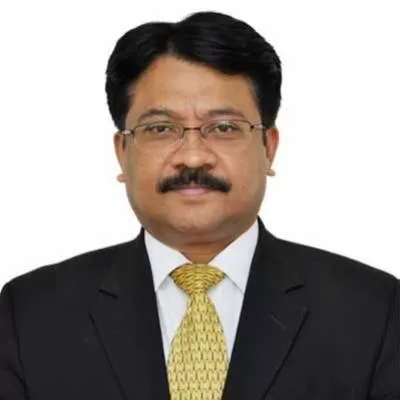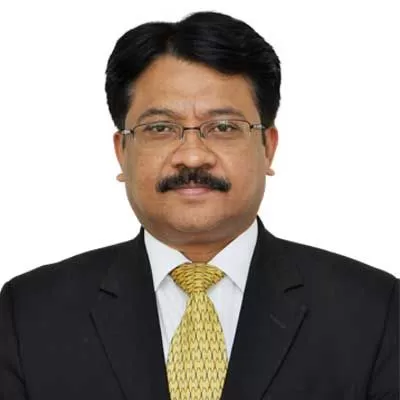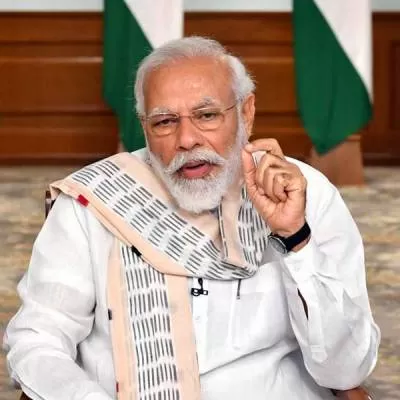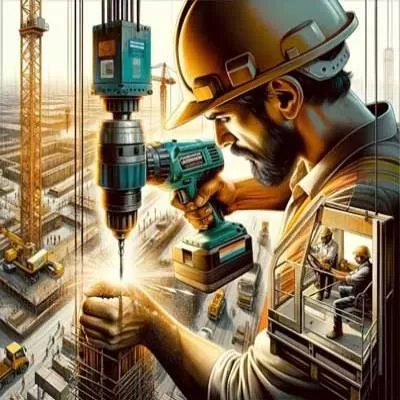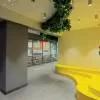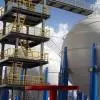- Home
- Infrastructure Urban
- ECONOMY & POLICY
- Profit margins are higher in private projects compared to government projects.
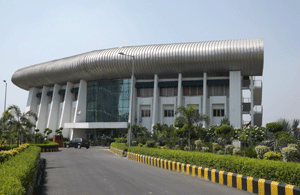
Profit margins are higher in private projects compared to government projects.
With about 1.7 million sq ft of residential space, 1 million sq ft of commercial space and 2 million sq ft of government contracts already delivered, Noida-based Horizon Concept has already established an impressive track record. Its vision is simple: real concepts, real people, real experience, real promises and real delivery. As Suninder Sandha, Director, Horizon Concept, says, "If you have the right product and target the right market, you can get anything any time." After executing projects in Delhi-NCR, Jammu and Gurgaon, the company has ventured into Punjab and has now purchased land in Rajasthan. Sandha further discusses the company's experience and projects in conversation with SHRIYAL SETHUMADHAVAN.
Do you prefer government or private projects?
We have executed a number of government projects. One is Gautam Buddha University, the largest university in Asia, in Greater Noida. We have also done a number of projects in the private sector. Iridia, an 800-apartment project in Noida, is one of our landmark projects. It is under construction and the home loan is being done by SBI. Although there is less money to be made in government projects, these are more prestigious. On the contrary, in private projects, timelines are more stringent but profit margins are much higher.
Owing to your involvement in government projects, is the approval scenario different for you?
As long as you have the right product and tender, approvals are no big deal. But yes, having the right relationship with a government authority does help.
Otherwise, what is the exact issue with approvals?
Developers want everything done their way. The policy is already set by the Government. And when we try and do things outside the policy, approvals get difficult. The best policy is not to bend the rules and stay within the guidelines.
What are the challenges in executing government projects?
The biggest challenge is the change of the government itself. While a government is in power, it initiates a project and has a vision for it. However, if there is a change, the vision changes, priorities change and, hence, certain bodies take a backseat. That is when it becomes problematic. However, we have devised a strategy wherein every project is treated as an independent company. We do have a group company, but every individual project is run as a special purpose vehicle (SPV) with its own marketing firm and construction company. And every project is run as an escrow; so basically, from the total amount that comes into the project, 20 per cent goes into the construction account and another 20 per cent goes into the marketing account. So the money we earn from one project is used for the same project. And even during the time it is not being used, that money is secured and earmarked for construction only. This helps in the longer run.
Tell us about your project experience in Jammu and Kashmir.
Norms in Jammu are different because you have to be a resident to own property. So you can't go and do an independent project yourself. You need to have local partners. The reason we entered J&K was because we had good relations with the J&K Housing Board. We did a couple of projects for them and then decided to do some private projects too. When it comes to doing construction, it is like any other place. But in Delhi-NCR, 75-80 per cent of the property is sold as investment whereas in Jammu, especially, about 90-95 per cent of the population buys property to actually live in. Moreover, there are a lot of challenges in J&K with the Army's presence and the curfews. Hence, in all three residential projects we have delivered, we have provided for a small supermarket inside the complex so residents can buy whatever they want within the complex. To tackle the basic challenges of electricity and water, we have ensured power backup and rainwater harvesting system.
How is it like working in Tier-II cities compared to Tier-I?
In Tier-II cities, you have less competition and less demand to compete with in the case of sourcing materials. Also, profit margins are higher when you construct in a Tier-II city. But the challenge in a small city is that investors do not see high returns as they would expect in cities like Delhi-NCR. Also, selling to the end-user takes time. For example, a 200-apartment project would take one year to sell in a Tier-II city but in Delhi-NCR, it would take a month.
You have set a record for yourself to complete projects on time. What role does technology play in this?
New techniques like prefabricated wood are being introduced. So an entire wall that used to be done manually is now done by machines. Such techniques make a huge difference to timelines. Also, we initially used ash bricks in our projects in Jammu and have now decided to use them in almost all our projects. To save money, many companies use conventional methods. But when we adopt these techniques and deliver projects on time, we automatically save money.
How do you deal with rising construction material prices?
Prices have been fluctuating and have been on the rise. This does take a toll on pricing and profit margins. But before we start construction and sell a project, we tie up with major suppliers for raw materials, ensuring that tie-up contracts go hand-in-hand with supply. So at least we know that the lifecycle of that project will get its price down. Being a price-driven project, we have to ensure everything fits in just right into the budget. It is the only way we can control pricing.
Tell us about your equipment bank.
From concrete plants to cranes, we own the majority of our equipment. Also, for government projects, we need to have our own machinery. However, we have no fixed annual budget in terms of investments. It depends from project to project. On any project, about Rs 5 crore to Rs 10 crore is the initial investment for machinery for us.
How has the company performed in the last fiscal?
We started three new projects, completed two projects and are on the verge of completing the third one. While our turnover was about Rs 1,500 crore in the last financial year, we are aiming at about Rs 2,000 crore in the forthcoming fiscal.
Year of establishment: 1996
Top management:
Directors: JS Sandha, Naresh Sabharwal, Suninder Sandha and Jeevesh Sabharwal
No of Employees: 500
Centre of Operations:
Delhi, Noida, Amritsar, Jammu, Ghaziabad and Dehradun
Turnover: Rs 1,500 crore
Some completed projects: Administrative Building, GBU, Greater Noida; School Of Engineering Building, GBU, Greater Noida; International Centre, Gbu, Greater Noida; Cricket Pavilion, Sports Complex, Greater Noida.
Ongoing projects: Orizzonte, Greater Noida; Iridia Apartments, Noida; Stupendous Luxury Apartments, Amritsar; River Castle Apartments, Jammu; Aerobera Luxury Apartments, Jammu
Upcoming projects: Azure, Bhiwadi; Credo Galleria, Gurgaon; Eternia Apartments, Gurgaon, Al-Amaira; Dehradun
Suninder Sandha, Director, Horizon Concept With about 1.7 million sq ft of residential space, 1 million sq ft of commercial space and 2 million sq ft of government contracts already delivered, Noida-based Horizon Concept has already established an impressive track record. Its vision is simple: real concepts, real people, real experience, real promises and real delivery. As Suninder Sandha, Director, Horizon Concept, says, "If you have the right product and target the right market, you can get anything any time." After executing projects in Delhi-NCR, Jammu and Gurgaon, the company has ventured into Punjab and has now purchased land in Rajasthan. Sandha further discusses the company's experience and projects in conversation with SHRIYAL SETHUMADHAVAN. Do you prefer government or private projects? We have executed a number of government projects. One is Gautam Buddha University, the largest university in Asia, in Greater Noida. We have also done a number of projects in the private sector. Iridia, an 800-apartment project in Noida, is one of our landmark projects. It is under construction and the home loan is being done by SBI. Although there is less money to be made in government projects, these are more prestigious. On the contrary, in private projects, timelines are more stringent but profit margins are much higher. Owing to your involvement in government projects, is the approval scenario different for you? As long as you have the right product and tender, approvals are no big deal. But yes, having the right relationship with a government authority does help. Otherwise, what is the exact issue with approvals? Developers want everything done their way. The policy is already set by the Government. And when we try and do things outside the policy, approvals get difficult. The best policy is not to bend the rules and stay within the guidelines. What are the challenges in executing government projects? The biggest challenge is the change of the government itself. While a government is in power, it initiates a project and has a vision for it. However, if there is a change, the vision changes, priorities change and, hence, certain bodies take a backseat. That is when it becomes problematic. However, we have devised a strategy wherein every project is treated as an independent company. We do have a group company, but every individual project is run as a special purpose vehicle (SPV) with its own marketing firm and construction company. And every project is run as an escrow; so basically, from the total amount that comes into the project, 20 per cent goes into the construction account and another 20 per cent goes into the marketing account. So the money we earn from one project is used for the same project. And even during the time it is not being used, that money is secured and earmarked for construction only. This helps in the longer run. Tell us about your project experience in Jammu and Kashmir. Norms in Jammu are different because you have to be a resident to own property. So you can't go and do an independent project yourself. You need to have local partners. The reason we entered J&K was because we had good relations with the J&K Housing Board. We did a couple of projects for them and then decided to do some private projects too. When it comes to doing construction, it is like any other place. But in Delhi-NCR, 75-80 per cent of the property is sold as investment whereas in Jammu, especially, about 90-95 per cent of the population buys property to actually live in. Moreover, there are a lot of challenges in J&K with the Army's presence and the curfews. Hence, in all three residential projects we have delivered, we have provided for a small supermarket inside the complex so residents can buy whatever they want within the complex. To tackle the basic challenges of electricity and water, we have ensured power backup and rainwater harvesting system. How is it like working in Tier-II cities compared to Tier-I? In Tier-II cities, you have less competition and less demand to compete with in the case of sourcing materials. Also, profit margins are higher when you construct in a Tier-II city. But the challenge in a small city is that investors do not see high returns as they would expect in cities like Delhi-NCR. Also, selling to the end-user takes time. For example, a 200-apartment project would take one year to sell in a Tier-II city but in Delhi-NCR, it would take a month. You have set a record for yourself to complete projects on time. What role does technology play in this? New techniques like prefabricated wood are being introduced. So an entire wall that used to be done manually is now done by machines. Such techniques make a huge difference to timelines. Also, we initially used ash bricks in our projects in Jammu and have now decided to use them in almost all our projects. To save money, many companies use conventional methods. But when we adopt these techniques and deliver projects on time, we automatically save money. How do you deal with rising construction material prices? Prices have been fluctuating and have been on the rise. This does take a toll on pricing and profit margins. But before we start construction and sell a project, we tie up with major suppliers for raw materials, ensuring that tie-up contracts go hand-in-hand with supply. So at least we know that the lifecycle of that project will get its price down. Being a price-driven project, we have to ensure everything fits in just right into the budget. It is the only way we can control pricing. Tell us about your equipment bank. From concrete plants to cranes, we own the majority of our equipment. Also, for government projects, we need to have our own machinery. However, we have no fixed annual budget in terms of investments. It depends from project to project. On any project, about Rs 5 crore to Rs 10 crore is the initial investment for machinery for us. How has the company performed in the last fiscal? We started three new projects, completed two projects and are on the verge of completing the third one. While our turnover was about Rs 1,500 crore in the last financial year, we are aiming at about Rs 2,000 crore in the forthcoming fiscal. Year of establishment: 1996 Top management: Directors: JS Sandha, Naresh Sabharwal, Suninder Sandha and Jeevesh Sabharwal No of Employees: 500 Centre of Operations: Delhi, Noida, Amritsar, Jammu, Ghaziabad and Dehradun Turnover: Rs 1,500 crore Some completed projects: Administrative Building, GBU, Greater Noida; School Of Engineering Building, GBU, Greater Noida; International Centre, Gbu, Greater Noida; Cricket Pavilion, Sports Complex, Greater Noida. Ongoing projects: Orizzonte, Greater Noida; Iridia Apartments, Noida; Stupendous Luxury Apartments, Amritsar; River Castle Apartments, Jammu; Aerobera Luxury Apartments, Jammu Upcoming projects: Azure, Bhiwadi; Credo Galleria, Gurgaon; Eternia Apartments, Gurgaon, Al-Amaira; Dehradun


